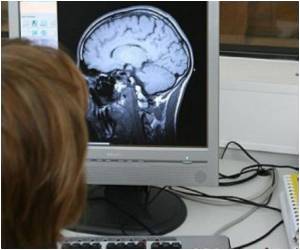Maria Barraza has no formal academic training in study design, yet is increasingly involved helping bridge cultural and linguistic gaps in research efforts.

‘Community Health Workers in the United States have become more critical to scientific endeavors, serving as community liaisons, assisting with participant recruitment, obtaining informed consent, implementing an intervention.’





A recent study by researchers at University of California, San Diego School of Medicine reports that educating CHWs like Barraza and other "citizen scientists" can improve knowledge of basic research concepts and ultimately boost the integrity of scientific research. The study was recently published online in the Journal of Microbiology & Biology Education. "Community involvement in research has steadily increased over the past 50 years. A lack of knowledge in the role of a CHW, known as Promotores de Salud in the Latino community, can be detrimental to the core mission of a research study," said Camille Nebeker, EdD, assistant professor with the Department of Family Medicine and Public Health. "Our team designed and tested an educational intervention to train CHW/Promotores about the scientific method and study ethics. The goal was to increase awareness of the high standards of research and the importance of protocol adherence to obtain meaningful results."
The Building Research Integrity and Capacity (BRIC) program consists of eight modules available in English and Spanish. The program can be administered either as self-paced training or incorporated into a professional development session geared to a specific study. BRIC, which recently received an award by the Health Improvement Institute, addresses topics that include research design, reliability, random assignment and bias. It is an extension of an earlier program called Training in Research Ethics and Standards (TRES) and Basic Research Concepts.
"Without an adequate understanding of research or recognition that the work they are doing is part of a study, CHWs may make decisions that unintentionally compromise protocol and not realize how their actions influence the interpretation of data," said Nebeker.
CHWs in the United States have become more critical to scientific endeavors, serving as community liaisons, assisting with participant recruitment, obtaining informed consent, implementing an intervention, collecting data, and in some cases, reporting study results.
Advertisement
BRIC's overarching goal is to use innovative tools to give novice research facilitators more in-depth knowledge of how a study is conducted, their role and the importance of protocol adherence.
Advertisement
After going through BRIC, Barraza says she is more prepared, with a fuller understanding of the studies being conducted and the importance of the role she plays. "Before BRIC, I didn't always know what the goal of a study was or what the results were," said Barraza. "Now, I have a full concept of what is trying to be achieved, which helps me do my job more effectively. I know how my piece of the puzzle fits in."
Source-Eurekalert









